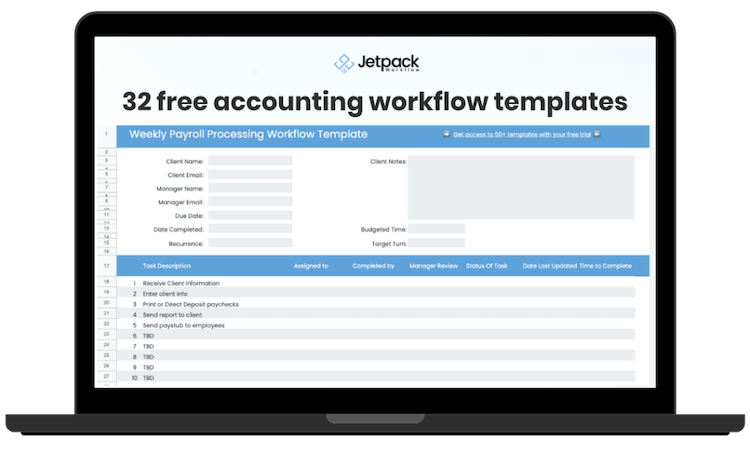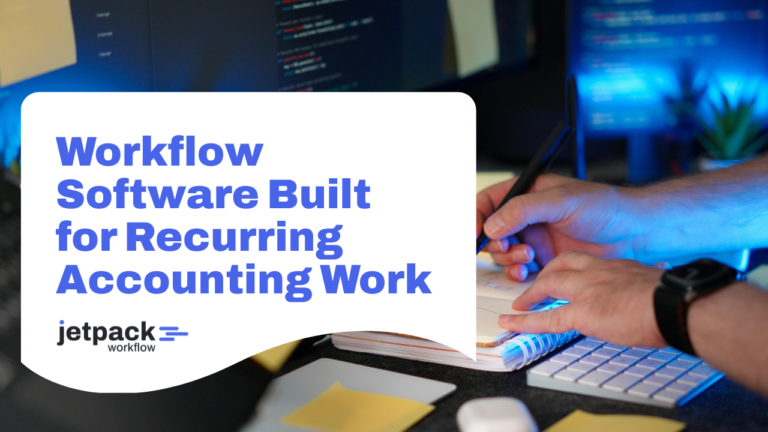Top 20 Accounting Interview Questions to Ask Candidates

The hiring process for any job is challenging, with the most qualified candidates often having their choice of employment offers from competing firms. It is even more overwhelming when trying to onboard an accountant. You want a candidate that can manage your company’s clients deftly with no margin for error.
While a candidate’s qualifications and certifications play a significant role in their success for the position, you must consider other factors like the ability to work with a team and to think outside the box. That means asking the right questions that allow the candidate to talk about their experiences and personality.
If you have an open position in your firm, here’s an excellent selection of questions to ask potential candidates. These explore the interviewee’s problem-solving skills, their grasp of the technical bits of accounting, and how well they will fit in your workplace.
20 Accounting Interview Questions You Should Be Asking Your Candidate
There are numerous accounting questions to ask your candidates. Unfortunately, you might not have enough time to ask all the questions on your list during the interview.
That’s why a checklist with the top essential questions is a must-have. In addition, it needs to have questions that will help gauge the candidate’s technical knowledge, problem-solving skills, ability to work in a team, values and motivating factors, and leadership skills.
We recommend dividing your interview questions into two sections, skill-based and behavioral-based.
Skill Based Job Interview Questions
Skill-based questions will be more technical. Accounting managers ask these to assess a candidate’s understanding of the accounting processes and guidelines. Some of the questions to ask include:
1. Tell me what experience you have in accounting and finance?
You might be hiring for a particular accounting role, but you can use this indirect question to get the interviewee to open up about their different roles. For example, how much do they understand about accounts payable, accounts receivable, financial accounting, cost accounting, tax accounting, and treasury?
The more they know about these roles, the easier it is for them to get comfortable with any role in the field. A candidate with experience in more than one role in accounting will also work better with accountants in other departments as they understand their processes.
2. Your ledger has a $90 variance. Take me through the process you would use to identify the error.
A good accountant must know their way around basic bookkeeping activities. How the interviewee answers this question will first display their understanding of ledgers. Second, it will show their problem-solving skills. A good response will include using one or two approaches they have previously used to identify errors in a ledger.
3. A client has four bank accounts. How many ledgers should they have?
General knowledge of ledgers and how they work is a must-have skill for any accountant, even beginners. This can start as a basic question that could get deeper based on their knowledge of the concept and the particular accounting job they are interviewing for. Then, you can explore it further with the type of journal entry they can post to correct different ledger accounts.
4. What is your preferred Enterprise Resource Planning (ERP) system?
One of the most common questions for accounting professionals is what accounting systems they are familiar with. However, you can switch it up and instead ask which system they prefer. Here, you are looking to see whether they can clearly articulate the differences in functionalities between any ERP systems they have used or had an opportunity to train on.
A red flag in this scenario is an experienced candidate who cannot point out key differences in features between two or more systems. If the candidate only has experience with one system, how well do they know their way around it?
Graduates entering the workforce might have little to no experience with any ERP system. However, are they knowledgeable about any system? And how fast can they learn, or will your team have to invest hours in training?
The same applies to candidates with years of experience. Technology is ever-evolving, even in the accounting world. For example, ERP systems are moving to cloud storage with automation and integrations of processes. Can they adapt to the technological changes?
5. What financial ratios are most important for the position you are applying for?
Financial ratios are important to accountants. They might not use all the ratios, but a few apply to particular roles. The goal is to see if the candidate understands their tasks based on the job description. Can they name one or two financial ratios they will use for their department?
6. How would you estimate a bad debt for a client?
If the candidate has experience with accounts payable, they will give an example of a method they used with their previous employer. They could also point out ways of estimating bad debt and pinpoint a favored one they use and why. If you have entry-level candidates, they should use their theoretical knowledge and possibly query you on your firm’s method.
7. A client recently bought a piece of equipment for its business. What is the impact on the financial statements?
The purchase of a piece of equipment will affect all three financial statements. Therefore, this question tests the candidate’s understanding of the cash flow statements, balance sheets, and income statements.
While a detailed explanation of how the purchase of such an asset reflects on the financial reports is perfect, the best candidate is the one who requests more details about the purchase. Some of the follow-up questions to look for from a candidate are the method of financing or when the transaction will be recorded.
A candidate might not ask a question but make an assumption of the process and answer accordingly. For example, they can respond with the belief that the purchase is debt-financed and proceed to explain how the financial statements will be affected.
8. What is the difference between depreciation and amortization?
This line of questioning allows you to see whether the interviewee understands the different methods of expensing an asset over its life. And, can they tell which of these methods is for fixed assets and which applies to intangible assets?
9. Tell me about a time you had to use creative accounting.
Accounting requires following set rules and guidelines. However, deviating to find ways to reduce expenses, save on taxes, get affordable financing and cut operational costs legally are skills any employer would appreciate in an accountant. That’s why it is vital to have a creative accountant who knows how to follow the rules to the letter but will also use legal ways to save the client money.
This question will help you understand the candidate’s thinking process when presented with a situation that requires a little maneuvering. If they have not experienced any, they can probably make up an example or say how they feel about creative accounting.
When a candidate fails to demonstrate they agree with creative accounting, it may indicate they cannot use legal loopholes or their knowledge of financial reporting to help the client reduce costs or tax liabilities.
10. On accounting software, does price or functionality matter more?
There are numerous accounting software programs, each with different functionalities and price tags. The candidate might not have had the opportunity to use them all. And that is okay. But if they have enough experience and knowledge of different systems, they can easily tell the differences between them.
For example, one can pick what functionality a particular ERP system has that its competitor lacks. Then, depending on its processes, they can also quickly tell whether the available features and pricing are necessary for a client.
The goal is to decipher whether the candidate knows the different pricing levels and functionalities of the ERP systems. Do they also understand that the price of an ERP system doesn’t necessarily determine its functionality or vice versa?
11. A client recently purchased an asset. What would cause the asset to depreciate, and by how much?
Does the candidate know what depreciation in accounting is and what causes it? Do they know the different depreciation rates for assets? Also, as they answer this question, listen for what they have to say about the various depreciation methods. The more they can expound on their answer on this, the more you are assured they understand the concept.
For instance, the candidate could start by asking what asset was bought or give an example of an asset the business could buy based on their research. They could continue by referencing assets such as computers, furniture, machinery, and vehicles.
Depending on the assets, they can point out that depreciation could be due to wear and tear or running obsolete over time. They could even say the depreciation rate and what method the client could use. This assures you they would do more research on the company by reading its financial records.
12. What is this called if a client buys another company for more than its fair value? How would you record this transaction?
Interviewers ask this to learn if the candidate has a deep understanding of goodwill. For starters, can they name the result of this action as goodwill? Second, do they know what causes goodwill and items that could lead to it? Third, you are looking for a candidate who understands the basic entries for capturing goodwill in the books.
13. What’s the latest accounting standard, and how does it impact a business?
There are numerous accounting standards, and accountants are expected to know them. But given the constant revisions and changes, it is probably not possible for a candidate to know every standard. However, the biggest concern is whether they know a client’s criteria in reporting their financials.
Just as importantly, are they up to date with any changes that could affect the client’s reports and financials? Again, apart from highlighting their knowledge of the necessary standards, it shows they have done their homework and read the client’s financial statements.
14. How do you stay updated on the changes in the industry?
Apart from the changing accounting standards, other changes in the industry and laws can significantly impact your business. Due to this, it is crucial to have accountants who go the extra mile to stay up to date. This could be subscriptions to business newsletters, industry publications, following a podcast, or registration with a professional body. Your ideal candidate uses multiple avenues to stay updated on changes in the industry.
Behavioral Interview Questions
Apart from accounting knowledge and skills, it also helps to ask behavioral questions. These allow you to gauge the candidate’s personality and how they react in different situations.
There is no specific answer to this as candidates have unique personalities. However, you can use the STAR method to analyze the responses to behavioral questions. It stands for:
- Situation. Can they give context on the specific problem they are describing?
- Task. What was their role in it?
- Action. What action did they take?
- Result. What was the result of the action taken?
The ultimate goal is to see whether they will be an excellent fit for your firm.
15. What is the first thing you would do during your first week if you got the job?
Some firms want an accountant who will hit the ground running on their first day. On the other hand, others like hiring employees who take the time to understand their new work environment and colleagues. Maybe a candidate who will take the time to learn more about the role from someone with experience before starting.
While the correct answer will depend on your needs as a hiring manager, it is great to consider the latter types of candidates. Such candidates demonstrate the need first to understand what they are dealing with. They will also get to know your company’s processes first, reducing errors and the need for retraining in the future.
16. You have a tight deadline to meet with numerous tasks and limited time. What would you do?
Here, you are trying to test the interviewee’s organizational and time management skills. Unfortunately, many projects in accounting have strict deadlines, and some may be running simultaneously. For instance, your accounting firm could be handling year-end financials for numerous clients, and an accountant might be responsible for at least two or three clients.
First, you are looking for a candidate who can demonstrate the ability to prioritize the most critical tasks. Second, how can they split the tasks within the given time and complete them accurately? Finally, you also need an employee who can multi-task to complete different job duties and reports in time.
17. How would you explain liquidity to a non-finance colleague?
With this question, you want to explore the candidate’s communication skills. For example, can they use straightforward language to explain complex accounting and finance terms to laypeople? Second, do they have the patience for such? Finally, to dig deeper, you can ask for clarifications based on their answers to see how they respond.
18. Have you been innovative in meeting a customer’s demands? What did you do?
Companies always have guidelines on how to handle client demands. However, some situations call for creativity to keep the customer happy while maintaining professionalism and staying within the company’s rules.
Whichever scenario the candidate gives, their approach to solving the problem will demonstrate their ability to identify hurdles and develop and implement a solution. If you are interviewing an inexperienced candidate, you can throw a hypothetical situation at them.
19. Have you ever failed before, and what did you do about it?
Hiring managers often ask candidates to recount a time they failed in their previous roles. It can point to a candidate’s ability to know when they have failed, whether they sought help and how they managed such incidents and turned them around.
However, if they already have a complete job description and key performance indicators of the open role, you could ask them what they would consider a failure in the role. For example, is it not meeting specified deadlines? Or, perhaps failing to upgrade processes to save time and money? Based on their answer, you can tell how much they believe in themselves and how they might handle obstacles when they arise.
20. When not crunching numbers, what do you enjoy doing?
Accounting comes with tight deadlines and the need for outstanding accuracy. A single mistake can cost time, human resources, and even money. As such, it is a high-pressure field, and one needs to take care of their mental and physical health.
So, how do they spend their spare time? Or decompress away from work? Do they have a hobby or interest, like reading, sketching, going to the movies, or catching up on a game with their friends?
You are looking for an employee with an avenue to relax and unplug from the busy and demanding accounting life. Candidates with interests and hobbies outside of their field have a better chance of achieving a work-life balance. But, more importantly, they are more likely to be satisfied with their job and career.
It is essential to pay close attention to how they answer this question. Is the answer rehearsed and robotic? Or are they relaxed and genuinely enjoying recounting their other passions? It can help you see how the candidate behaves when not looking to impress.
Need Help Managing Your Workflows Across Employees?
If you’re looking for simple workflow templates to stay on top of your projects and tasks for clients across your team, access our collection of 32 customizable accounting workflow templates and checklists here. This free resource includes a ton of the most popular accounting templates including monthly bookkeeping, weekly accounting analysis, client onboarding procedures, and common tax return forms.






